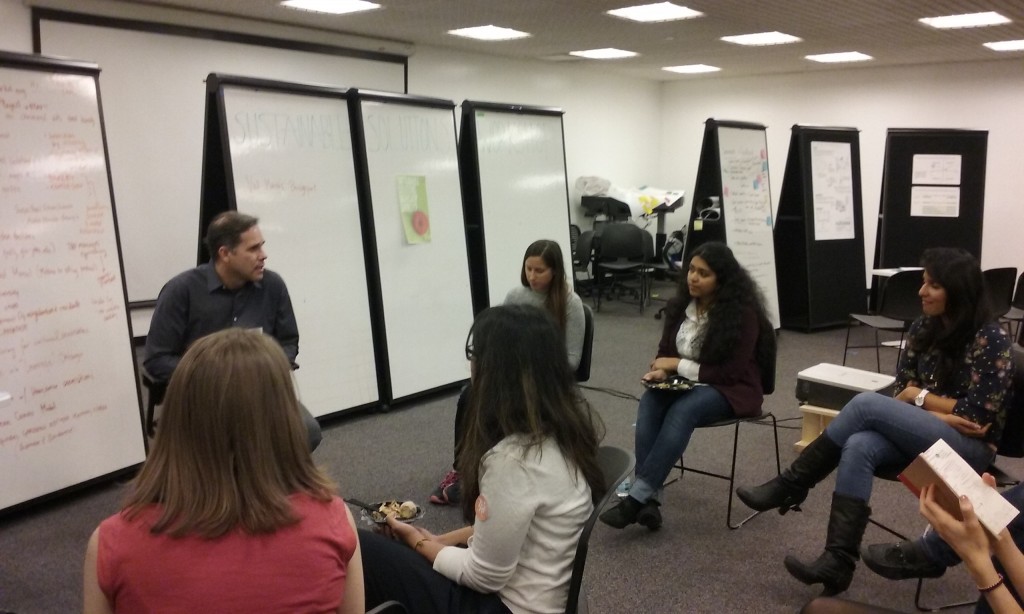Report on Sustainability Solutions Workshop Showcase at the IIT Institute of Design
The Sustainability Solutions Workshop Showcase presented at the IIT Institute of Design highlighted the innovations and challenges of local food systems. On November 30, students presented their projects to an audience composed of other students, faculty, and invited participants from interested organizations like CCGA. This workshop looked at the challenges and opportunities of sustainability in bringing local food to the people of Chicago by leveraging the interconnectivity of markets, technology, finance, and social networks.
It was shocking to learn that people of Illinois consume on average $48 Billion worth of food, and almost every single dollar spent on that leaves the state.
Led by IIT Institute of Design faculty member Carlos Texeira, students examined the complexities of contemporary local food systems. Many of these are found in our neighborhoods; they are local initiatives, such as farmers’ markets, food co-ops, urban farms, and community gardens which feed the demand for locally grown produce. There is a clear perception that it’s healthier, more sustainable and has fewer pesticides. In this course, students proposed interventions from new business models to new services linking people with food knowledge, tools, and means of production. How did they do this? These students were able to break the addiction to power point slide show presentation and transform their presentation into a visual, immersive experience using posters with colorful diagrams and drawings, tall white boards, and games for a very interactive showcase. Here’s a description of one poster presentation entitled ‘Cultivate’:

Cultivate is the first step in a local food system bringing together consumers, local food producers, and their community. Picture your community garden or farmers’ market. It marks one physical space in the first link in a network of what could be many “Hubs” in a metropolitan area. At these locations, consumers are brought together with fresh and locally sourced food (from your garden or an urban farm) as well as prepared food in what offers convenience of shopping, tasting, or learning more about sustainability. Food vendors at the Hub are considered true partners in this network, not isolated entrepreneurs. The network includes a local restaurant or two that feature food grown in community gardens in the network, perhaps once a week. Tickets are sold to dinner at the restaurant. Value is created from the first step, added in the link to the restaurant and distributed through the network circuit.
Ultimately, these students hope their ideas envision new ways to impact local lives and the well-being of communities through innovation in food.
It was a lively showcase. Everyone was excited and intent on listening. There were 3 other poster presentations, but this is heady stuff, and you kind of get the idea.
The problem with this showcase based on theoretical projections of solutions is that it is was missing connection with the very food system it was interpreting– community gardens and urban farmers. A collective voice was missing from the very people who comprise a food system. Students themselves, meeting in a summary of the workshop, stated that they became acutely aware of the absence of those voices. As participants to their showcase asked questions about the Posters and made remarks about the current reality of their communities, students realized they had missed a meaningful connection. The instructor grasped this immediately and promised to include more grassroots engagement in future courses.
By Lorraine Kells
